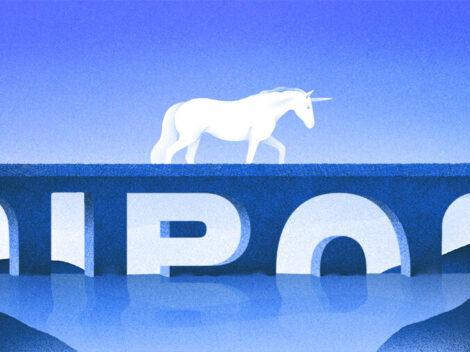Poshmark, a social platform for buying and selling clothes and accessories, is one of the many venture-backed startups that have recently joined the ranks of public companies.
Subscribe to the Crunchbase Daily
Shares of the Redwood City, California-based began trading Thursday, doubling in price almost right out of the gate. By the close of day, its shares were trading at $101.50, up 140 percent.
Poshmark1 is just the latest e-commerce company to go public. In the past year, a lengthy list of retailers have either started trading on the public markets or indicated they plan to go public, including Wish, Casper, BigCommerce, DoorDash, ThredUp, Petco and BarkBox.
In filings with the U.S. Securities and Exchange Commission, Poshmark reported that more than 70 million users have sold more than 130 million items through the platform since its inception in 2011.
Earlier this week, I spoke to Menlo Venture’s Venky Ganesan, who has known Poshmark CEO Manish Chandra for 20 years. Ganesan chatted with me about why Menlo Ventures made its initial investment in Poshmark, how he thinks the the relationship between his firm and the company will change now that Poshmark is publicly traded, and what this all means for the e-commerce industry.

Why did Menlo Ventures make that first investment in Poshmark in 2012?
Ganesan: Menlo loves marketplaces, and we love the business model. We are backers of similar companies, like Uber, Rover and Getaround, and in a previous life, I was an investor in Upwork. Poshmark is the future of shopping, combining the shift to online, the social element and second-hand products. The “new new” is second-hand and reused. Poshmark is unique in that it carries new inventory all the time, and it doesn’t have to touch anything. It connects a community of buyers and sellers.
What do successes like Poshmark mean for the e-commerce industry?
Ganesan: It is an incredible space for e-commerce. It has hit an inflection point and the shift to online is real. When you look back at commerce from 2006 to 2019, it grew 6 to 16 percent, but from 2019 to today, it went from 16 to 26 percent. The shift is real. In addition, Poshmark has added an element of social, as well as addressing ESG (environmental, social and corporate governance) sensitivity, especially for millennials and Gen Z who care about the environment and sustainability, so reusing things is important.
How do portfolio companies initiate a conversation with their big investors about exiting, and what advice do you typically give?
Ganesan: I tell people an IPO is not an exit, it is a financial event. It is an opportunity to build a sustainable company. You should only do it if you think you have a proven business model, in a huge market, and a long clear roadmap. Poshmark had all of those, and it made sense to go public.
After a portfolio company enters the public markets, how does the relationship between company and VC change?
Ganesan: For one, I am not going to be a board member anymore, but I will continue to be a sounding board for Manish. We have had a relationship for over 20 years, and the journey is just beginning. The future they can have is breathtaking, and we will be a sounding board in every sense of the way.
I have the satisfaction of seeing someone grow up being successful and am proud of the association. Manish has built the values himself and was sensitive to the notion of diverse perspectives, so he joined with co-founder Tracy Sun and others to offer their perspectives. Then a couple of years ago, when they wanted to diversify the board, I handed the Menlo board seat to Jenny Ming, but stayed on as a board observer and was happy to see them bring on Serena Williams.
Photo of Poshmark’s CEO Manish Chandra and Menlo Venture’s Venky Ganesan courtesy of Menlo Ventures
Illustration: Dom Guzman
Disclosure: Mayfield is an investor in Crunchbase, the parent company of Crunchbase News. Mayfield is also an investor in Poshmark. All of Crunchbase’s investors are listed as part of its Crunchbase profile. For more about Crunchbase News’s editorial policies on disclosure, see the News team’s About page.↩

Stay up to date with recent funding rounds, acquisitions, and more with the Crunchbase Daily.



![Illustration of blender with random icons and M&A buttons. [Dom Guzman]](https://news.crunchbase.com/wp-content/uploads/MA_blender-470x352.jpg)


![Illustration of a guy watering plants with a blocked hose - Global [Dom Guzman]](https://news.crunchbase.com/wp-content/uploads/quarterly-global-3-300x168.jpg)
67.1K Followers